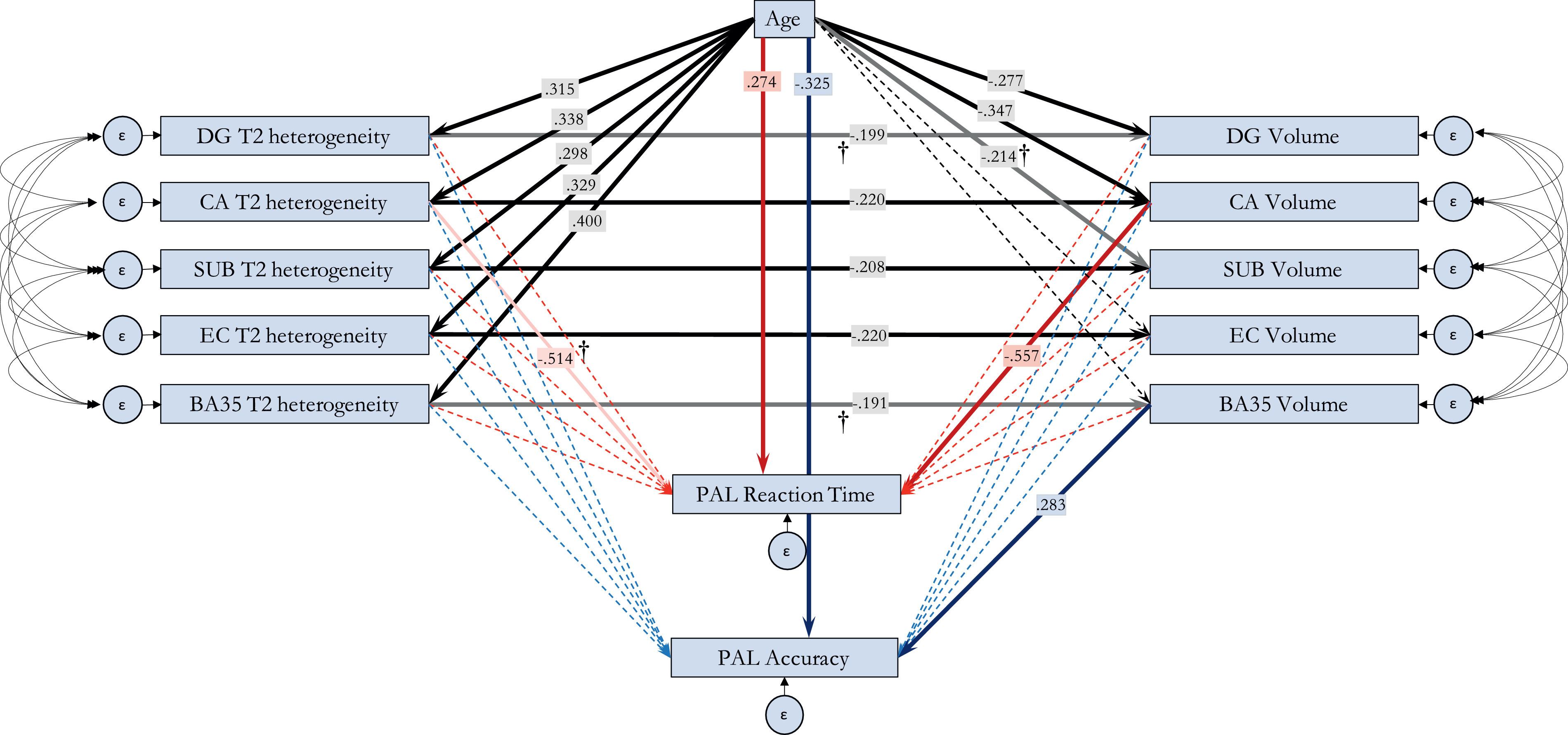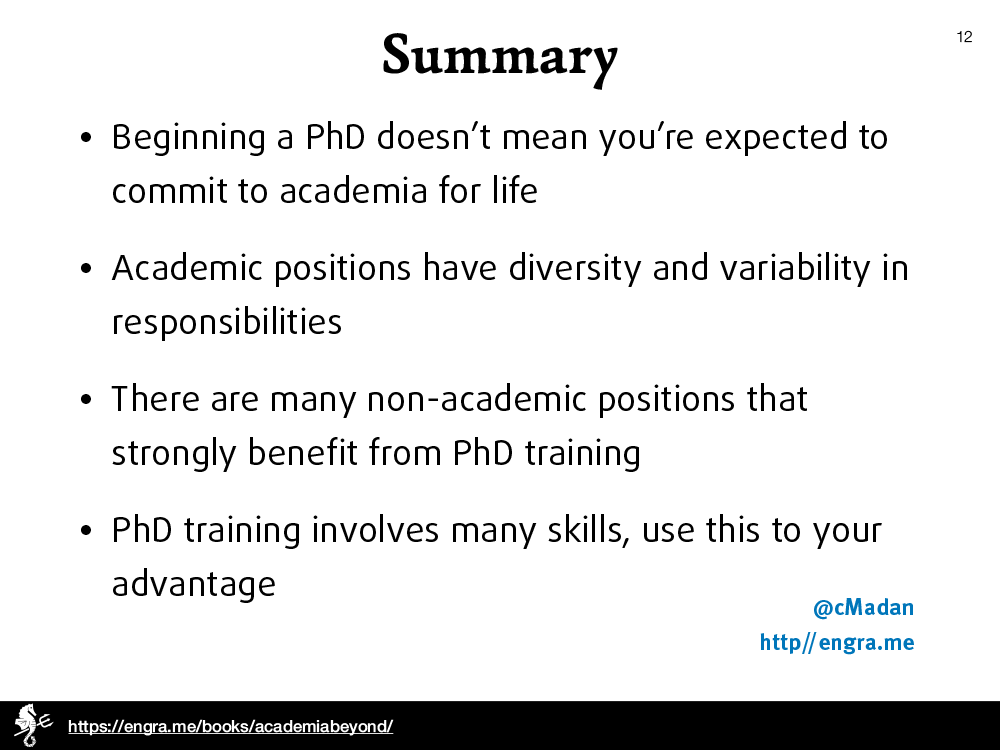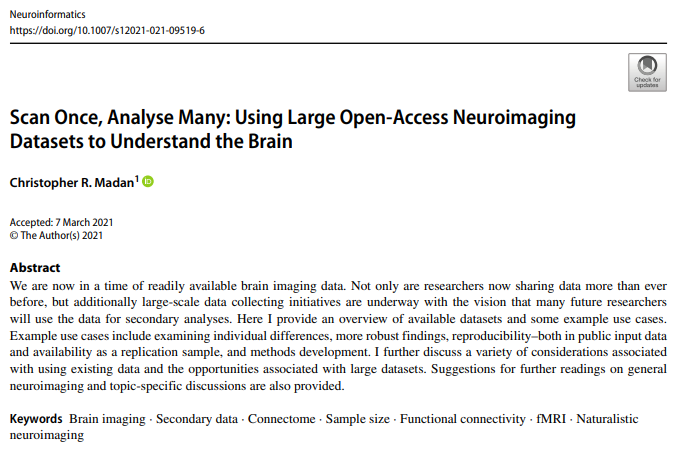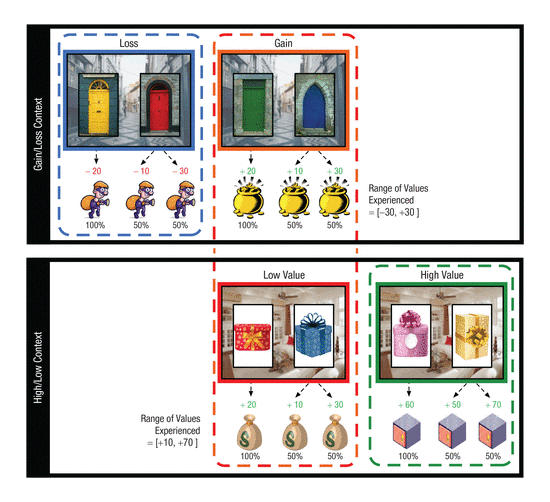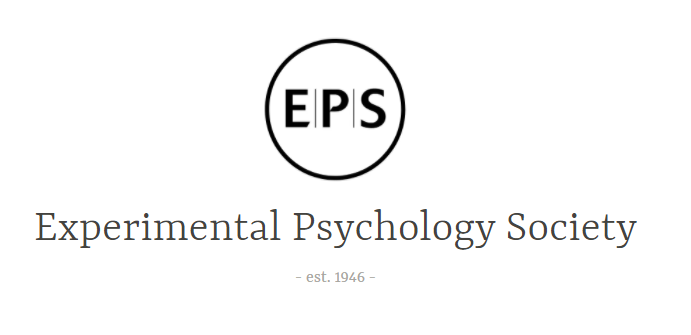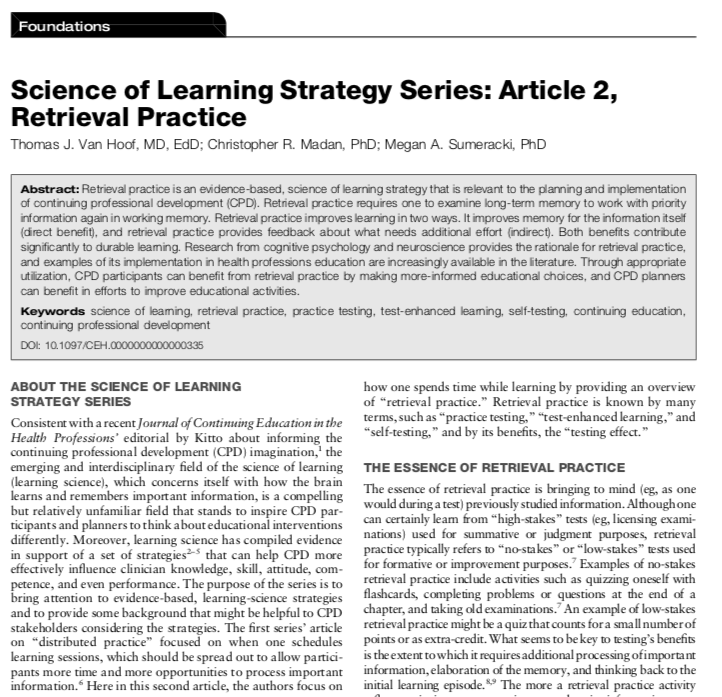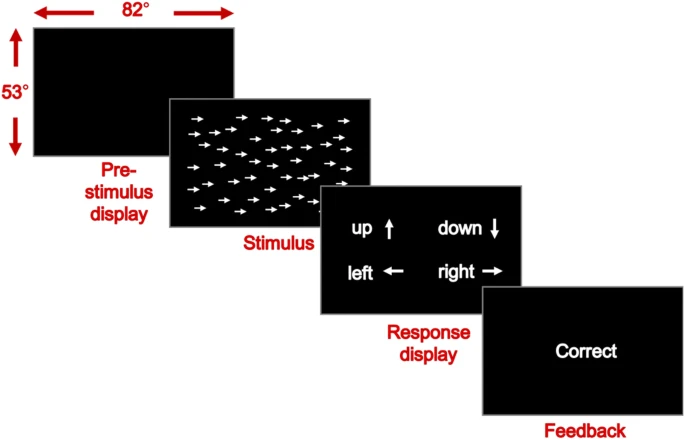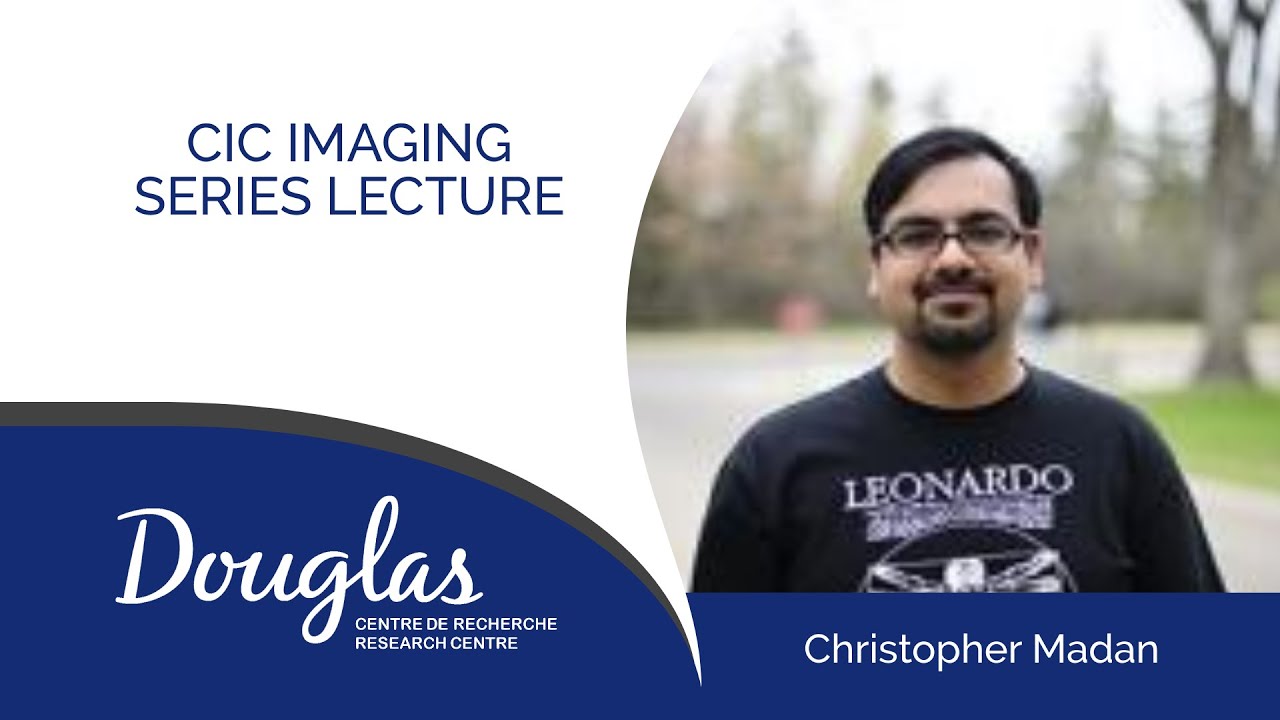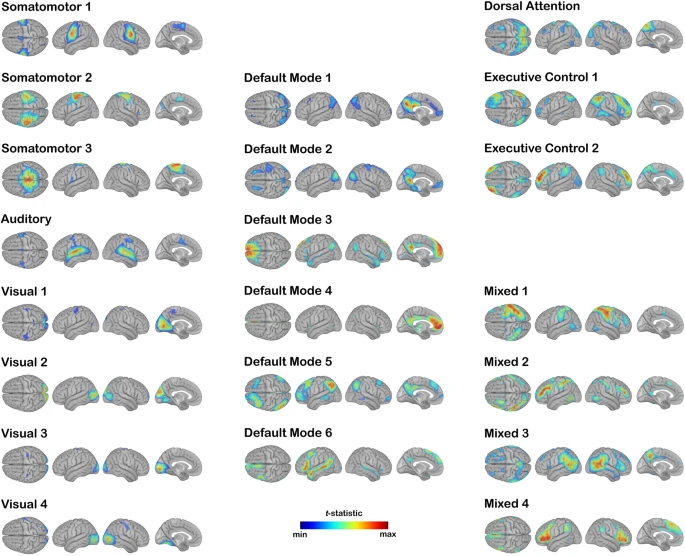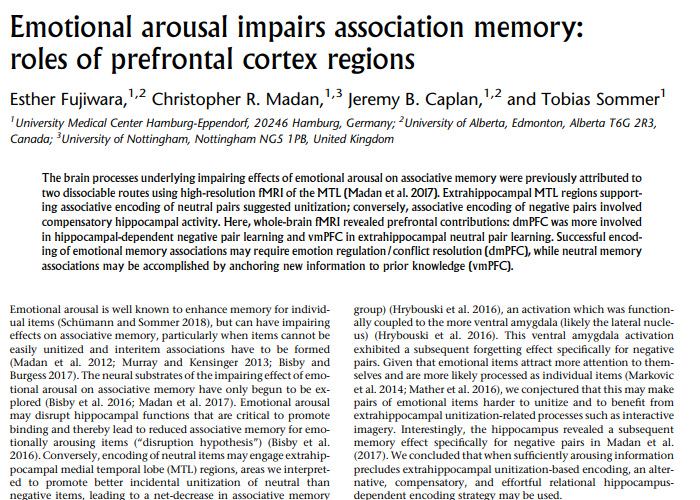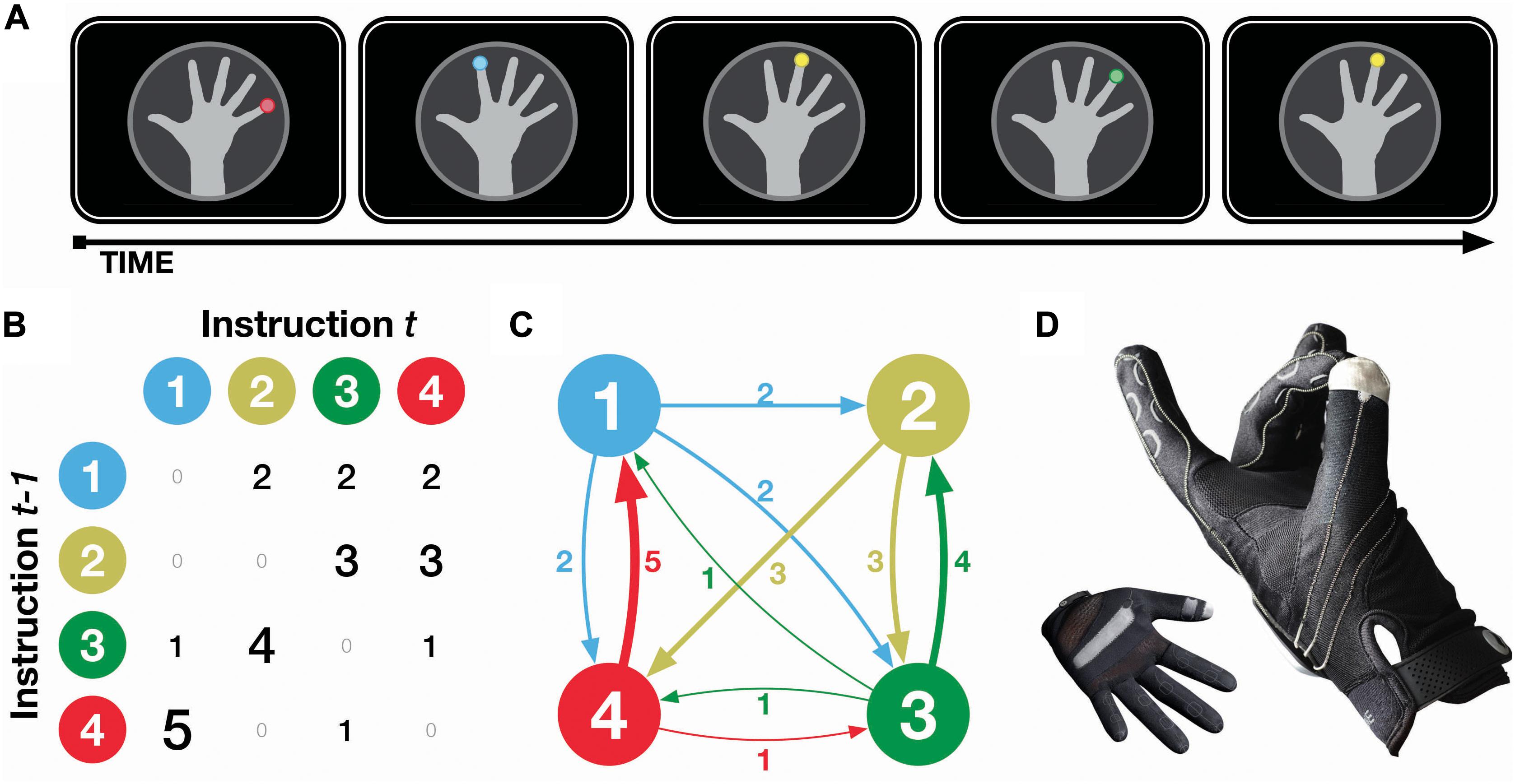Lab Updates
T2 heterogeneity as an in vivo marker of microstructural integrity in medial temporal lobe subfields in ageing and mild cognitive impairment
New paper looking at with Alfie Wearn, Liz Coulthard, and collaborators now online in NeuroImage!
“T2 heterogeneity in CA1-3 and entorhinal cortex and volume of entorhinal cortex showed some ability to predict cognitive decline, where absolute T2 could not, however further studies are required to verify this result. Increases in T2 heterogeneity in MTL cortices may reflect localised pathological change and may present as one of the earliest detectible brain changes prior to atrophy.”
Careers for Psychology Grads panel
Dr. Madan spoke as part of the “Careers for Psychology Grads” panel at NOWCAM, sharing insights from the recent post-PhD academic/non-academic interview project.
Stay tuned for more information about this project in the next months!
Scan Once, Analyse Many: Using large open-access neuroimaging datasets to understand the brain.
Now online in Neuroinformatics!
“We are now in a time of readily available brain imaging data. Not only are researchers now sharing data more than ever before, but additionally large-scale data collecting initiatives are underway with the vision that many future researchers will use the data for secondary analyses. Here I provide an overview of available datasets and some example use cases.”
Encoding Context Determines Risky Choice
Now online in Psychological Science!
“Both memory and choice are influenced by context: Memory is enhanced when encoding and retrieval contexts match, and choice is swayed by available options. Here, we assessed how context influences risky choice in an experience-based task”
Science of Learning Strategy Series: Article 2, Retrieval Practice
Second paper in a series, with Tom Van Hoof and Megan Sumeracki!
“Retrieval practice is an evidence-based, science of learning strategy that is relevant to the planning and implementation of continuing professional development (CPD). Retrieval practice requires one to examine long-term memory to work with priority information again in working memory.”
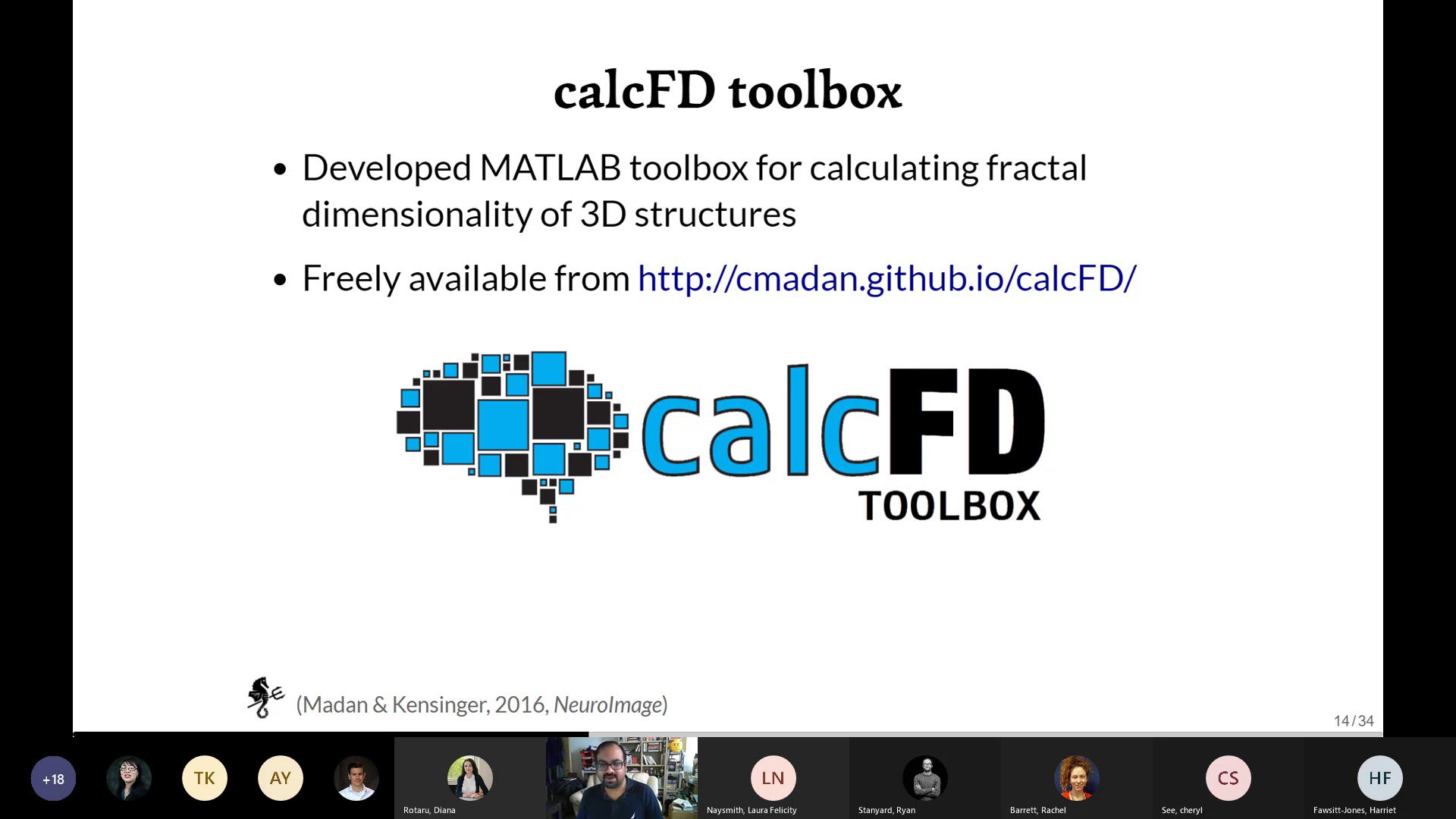
Invited seminars
Recently gave invited seminars on brain morphology and innovative cognitive psychology methods at King’s College London and Duke Kunshan University.
Cerebellar tDCS Alters the Perception of Optic Flow
New paper looking at age-related differences in resting-state fMRI activity, by Jean-François Nankoo, Chris Striemer, and collaborators.
“Our results show that anodal tDCS improves discrimination threshold for optic flow perception, but only for left-right motion in contrast to up-down motion discrimination. This result was evident within the first 10 min of stimulation and was also found post-stimulation. Cathodal stimulation did not have any significant effects on performance in any direction.”
Characterising the Cortex: Developing Novel Measures of Brain Morphology to Better Understand Brain
Dr Christopher Madan gave the weekly seminar for the McGill University Douglas Cerebral Imaging Centre. This talk was focused on work investigating novel brain structure measures to examine aging and the relationship between different measures of cortical structure.
Investigating the effects of healthy cognitive aging on brain functional connectivity using 4.7 T resting-state functional magnetic resonance imaging
New paper looking at age-related differences in resting-state fMRI activity, by Stan Hrybouski, Nikolai Malykhin, and collaborators.
“Our age comparisons of network topography and inter-network FC demonstrated a substantial amount of age invariance in the brain’s functional architecture. Despite architecture similarities, old adults displayed a loss of communication efficiency in our inter-network FC comparisons, driven primarily by the FC reduction in frontal and parietal association cortices.”
Emotional arousal impairs association memory: roles of prefrontal cortex regions
“The brain processes underlying impairing effects of emotional arousal on associative memory were previously attributed to two dissociable routes using high-resolution fMRI of the MTL (Madan et al. 2017). […] Here, whole-brain fMRI revealed prefrontal contributions: dmPFC was more involved in hippocampal-dependent negative pair learning and vmPFC in extrahippocampal neutral pair learning.”
Convergent and Distinct Effects of Multisensory Combination on Statistical Learning Using a Computer Glove
“Learning to play a musical instrument involves mapping visual + auditory cues to motor movements and anticipating transitions. Inspired by the serial reaction time task and artificial grammar learning, we investigated explicit and implicit knowledge of statistical learning in a sensorimotor task […] using a computer glove.”
